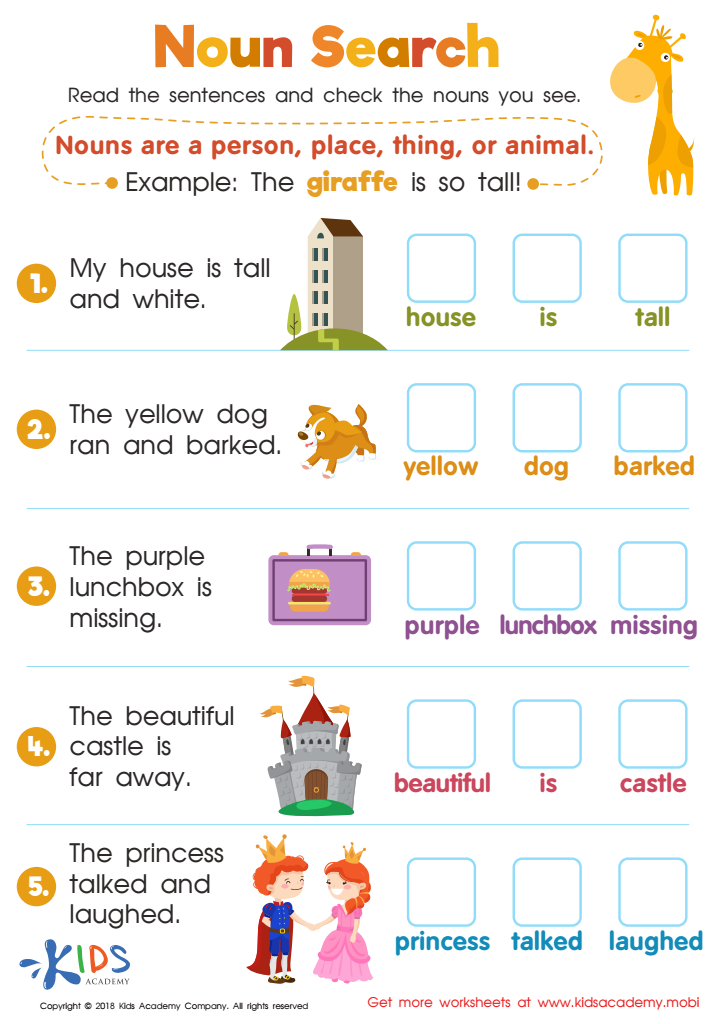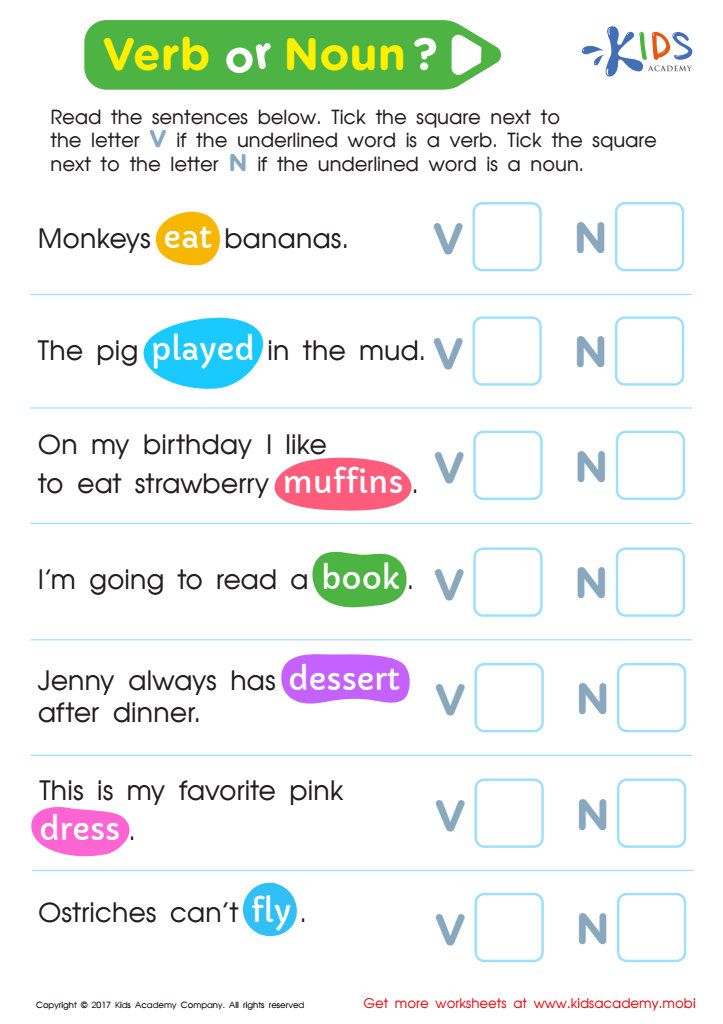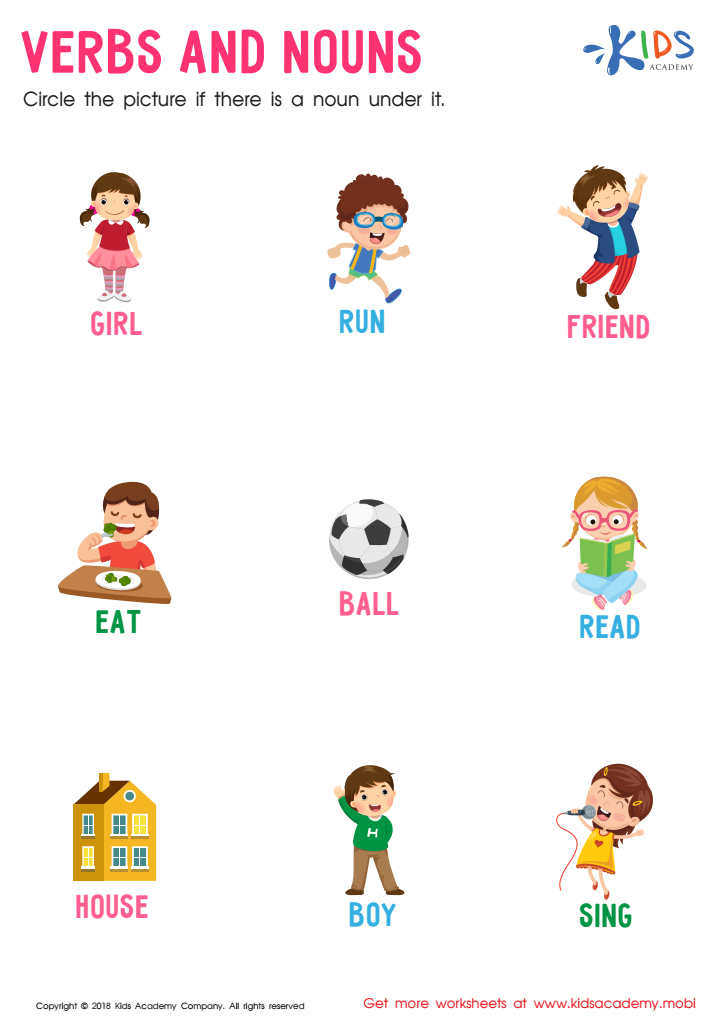Noun identification Normal Writing Worksheets for Ages 3-8
3 filtered results
-
From - To
Enhance your child's writing skills with our Noun Identification Normal Writing Worksheets, designed specifically for ages 3-8. These engaging and interactive worksheets help young learners recognize and understand nouns through fun activities. By categorizing various objects, people, and places, children will develop essential language skills while boosting their confidence in writing. With vibrant illustrations and age-appropriate exercises, our worksheets provide an enjoyable way for kids to explore nouns at their own pace. Ideal for homeschoolers and classroom settings, these resources nurture a love of learning and pave the way for literacy development. Start your noun journey today!


Noun Search Worksheet


Verb or Noun Worksheet


Verbs and Nouns Worksheet
Noun identification is a foundational skill that helps children understand the basics of language and communication. For parents and teachers of children aged 3 to 8, fostering this skill is crucial for several reasons. First, nouns are the building blocks of sentences; they name people, places, things, and ideas. By recognizing and using nouns, children can begin to form simple sentences, enhancing their expressive capabilities.
Secondly, acknowledging nouns promotes vocabulary development. Children who learn to identify nouns are more likely to engage with and remember the names of objects and concepts. This expanded vocabulary sets a solid groundwork for reading and writing, critical components of early education.
Additionally, noun identification ties into overall cognitive development. It encourages observational skills as children learn to categorize and understand the world around them. Engaging in activities that involve nouns—like identifying them in stories or during play—supports literacy and language playfully.
Finally, understanding nouns aids in comprehension. When children grasp the names of people and things in a story, they are better able to follow narratives and express their thoughts. Thus, both parents and teachers play a vital role in supporting this early language skill, fostering a love for learning and communication in young children.
 Assign to My Students
Assign to My Students




















